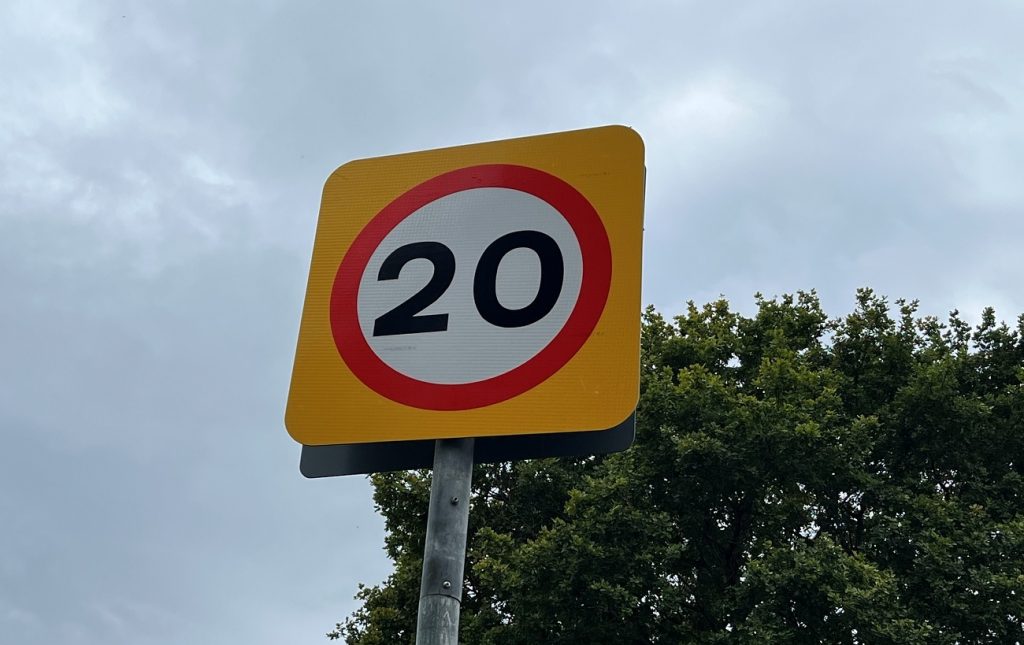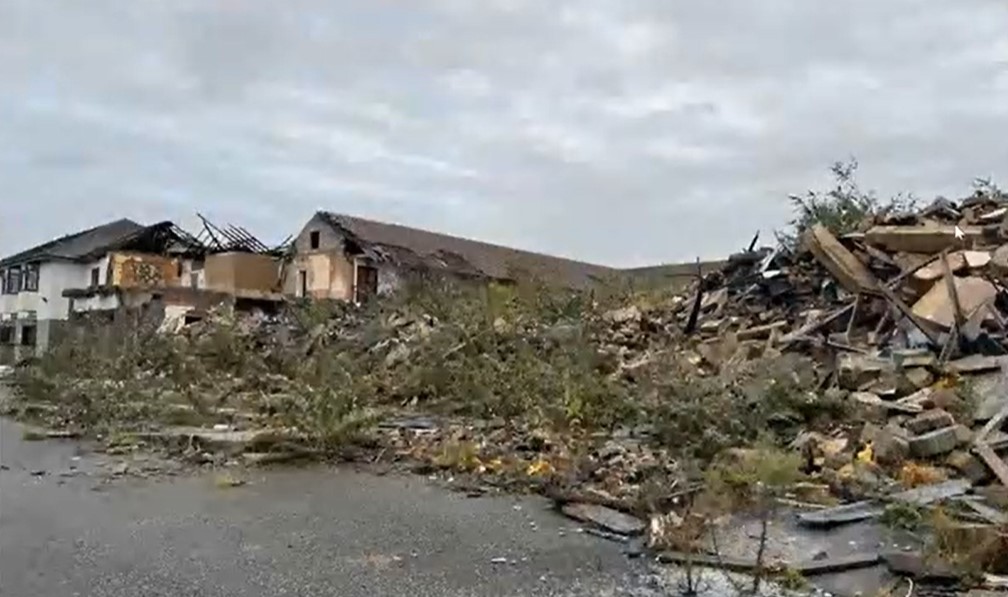Politics
Latest from council leader Cllr David Simpson

COUNCIL Leader, Councillor David Simpson, has provided a further coronavirus update.
He said in the latest in his regular briefings: “Well what a year we have all had. Who could have imagined how this Pandemic would change our lives in such a way?
“As an authority we have worked hard to protect our communities and ensure we managed the delivery of our services.
“On December 30 a meeting was held with Ministers in relation to back to school.
“As an authority we are proceeding with our plans for distance learning until face to face teaching returns on Monday, 11th January.
“Critical worker and vulnerable children’s child care will be provided from the 6th January.
“We will continue to use the evidence provided by Welsh Government to make decisions about the safe reopening of schools. If there needs to be any changes we will let learners and their families know.
“The Health Minister outlined the continuing concerns about the rise in hospitalisations. And I would like to highlight that our NHS is working very hard, but facing unprecedented times as we also face the additional winter pressures.
“I would urge you to please continue to adhere to the stay safe messages from Welsh Government about socially distancing and following the guidance as we remain in alert level 4.
“Covid-19 is still present in our communities and we all have a continued role to play to reduce the spread of the virus.
“I appreciate that my messages throughout the year have been asking for your support and I am very grateful for the way everyone has helped each other and supported those in our communities.
“I want to thank everyone in Pembrokeshire for doing the right thing and ensured we minimised the impact of Covid. However, I am very aware that this has impacted on many so my thoughts go out to you.
“It would be wrong of me not to highlight my thanks to all the NHS staff, care workers and carers out in the community.
“They have all worked so hard to look after those who need care – even more so this year as the demands have been higher. I [would like to] thank everyone in our health and care sector for what they have done for us.”
“I want to wish you all a Happy New Year and please raise a toast at midnight to the end of 2020 and welcome in 2021.”
Politics
Wales’ fire authorities ‘not fit for purpose’ says new local government secretary

WALES’ fire and rescue authorities are ill-equipped to hold services to account amid allegations of sexual harassment and bullying, a committee heard.
Julie James, the newly appointed local government secretary, gave evidence to a Senedd inquiry on the governance of fire and rescue services in Wales.
Ms James, who has only been in post for one working week, told the equality committee she is still getting to grips with her new brief which also includes housing and planning.
She raised concerns about the size of Wales’ three fire and rescue authorities, which have between 24 and 28 members and generally drawn from council backbenches.
By comparison, West Midlands fire and rescue authority has 15 members and serves a population that is slightly less than the whole of Wales.
Ms James said: “I suspect, strongly, that what we are looking at here is a governance model … that isn’t really well equipped to hold a specialist service to account.”
Jenny Rathbone questioned why a Wales-wide culture review was only initiated in March – more than a year after reports of sexual harassment and bullying first emerged.
Ms James told the committee chair the Welsh Government was waiting for the outcome of Fenella Morris KC’s report on the “horrific” culture of South Wales Fire and Rescue Service.
Dan Stephens, fire and rescue adviser and inspector for Wales, said he conducted a review in March 2023, looking back at five years of disciplinary cases across the three services.
Mr Stephens told committee members the review found a more consistent approach to disciplinary matters in North and Mid and West Wales.
Ms James said four commissioners, appointed by her predecessor, Hannah Blythyn, to take over the South Wales service, have replaced managers implicated in the failings.
Pressed about concerns around Stuart Millington’s appointment as interim chief fire officer, she said the commissioners were aware of a complaint made about him in 2023.
She told the committee: “That had been subject to a full external investigation which concluded there was no disciplinary case to answer.”
Following his appointment by commissioners, the Fire Brigades Union passed a vote of no confidence in Mr Millington amid accusations of harassment and discrimination.
Ms James, who was responsible for fire and rescue services three years ago in a previous stint as local government secretary, said the matter is now subject to employment tribunal.
Plaid Cymru’s Sioned Williams disputed the local government secretary’s assertion that Mr Millington was fully exonerated, suggesting aspects of the grievance were upheld
Ms James said: “We will have to see how the employment tribunal comes out.”
She added that appointments should be made on merit but warned: “I do think the fact we keep appointing men is one of the issues.
“I’m going to insist there is a female in that management structure … because I think all services that have single-sex teams end up in places where we don’t want them to be.
“We all know diversity of voices at a decision-making point leads to better decisions.”
Responding to Jane Dodds’ call for radical reform, Ms James told the Lib Dem the current model does not particularly work but she has not yet formed a view on its replacement.
Vowing to consult widely, the local government secretary said fire and rescue authorities, which were established in 1995, are not fit for purpose.
Ms James would not commit to a timeline for replacing “sub-optimal” fire authorities, which resisted reform in 2018, but she stressed: “This isn’t a long-grass scenario.”
She said: “I do think we’re going to have to come up with a governance model that looks a bit more 21st century than the one we currently have.”
Ms James told the meeting on April 22 that the legislative programme for the next two years is crammed, so she would look at what can be done within existing legal structures.
But she warned reconfiguration can be ruinous: “The actual process is awful, so you have to weigh up the outcome with the process…. Quite often the process isn’t worth the outcome.”
News
Change of course over Wales’ 20mph speed limit

WALES’ new transport secretary confirmed a change of course on the controversial 20mph policy but continued to face calls to scrap the default speed limit completely.
Ken Skates told the Senedd the 20mph policy will be targeted at schools, hospitals, nurseries, community centres, play areas and built-up residential areas.
Mr Skates said the Welsh Government will revise guidance on exceptions by the summer, with work to adjust speed limits expected to begin from September.
In response to councils’ concerns about costs, such as for swapping signs, he confirmed the Welsh Government will foot the bill for reverting roads back to 30mph.
Mr Skates said: “What I am doing now is listening to what people want for the roads in their communities and pressing ahead with refining the policy.”
Giving a statement on his priorities, the newly appointed cabinet secretary for north Wales and transport committed to listening to people to get the “right speed on the right roads”.
He said: “Ultimately, the degree of change in each of our 22 local authority areas will not be determined by me and the Welsh Government but by the public and councils.”
Mr Skates encouraged people to contact their local council via the Welsh Government’s website to have their say about where 20mph should be targeted.
The transport secretary, who returned to the frontbench in Vaughan Gething’s reshuffle in March, said an external review of the 20mph policy will be published in the next few weeks.
Mr Skates, who replaced Lee Waters, told the chamber new roads will be built and existing ones improved, with the network better designed to accommodate bus priority lanes.
Nearly half a million people signed a record-breaking Senedd petition, calling for the “disastrous” 20mph policy, which came into force in September, to be scrapped.
Pointing out that 20mph will remain the default, Natasha Asghar, the Conservatives’ shadow transport secretary, also called for the “daft, divisive and destructive” law to be abandoned.
She said: “It is clear from the rhetoric that the Welsh Government has finally cottoned on to the fact that the 20mph policy has been a complete shambles.”
The South Wales East MS urged the Welsh Government to go further by making 30mph the default speed limit with exceptions made for 20mph, rather than the other way around.
Ms Asghar warned that anything less than rescinding the law is just paying lip service.
However, Mr Skates argued the Conservatives’ suggested approach, which would require traffic regulation orders, would bankrupt Wales and increase red tape.
Delyth Jewell, Plaid Cymru’s shadow transport secretary, criticised the Welsh Government’s decision not to pursue legal action against UK ministers over HS2 funding.
Ms Jewell, who also represents South Wales East, told the chamber billions of pounds are at stake which would have a material effect on improving Wales’ transport services.
She said: “HS2 tracks don’t travel into Wales at all but we are paying for it all the same,” with Mr Skates responding that legal advice suggesting a challenge would likely fail.
The Plaid Cymru deputy leader raised concerns about drastic cuts to vital bus services, arguing investment in rail should not come at the expense of buses.
Turning to 20mph, Ms Jewell said it is important not to lose sight of the radical policy’s aim as she highlighted that a four-year-old girl was killed in a crash in Birmingham last week.
Plaid Cymru’s Heledd Fychan raised concerns about cuts to learner travel, saying no child should miss a day of school because they cannot afford the bus.
Vowing to work with Lynne Neagle, Wales’ new education secretary, on home-to-school transport, Mr Skates said the future of buses is one of his very top priorities.
Swansea East MS Mike Hedges called for a rebalancing of support between buses and rail.
Mr Skates told the Labour backbencher a forthcoming bill on bus services will correct the “great mistake” of privatisation in the mid-1980s.
Pressed by Plaid Cymru leader Rhun ap Iorwerth about calls for a third Menai crossing, Mr Skates did not rule it out but warned that public finances are incredibly tight.
Hefin David, the Labour MS for Caerphilly, welcomed plans to review the 20mph guidance, calling for councillors, who know their communities best, to be involved in discussions.
Community
Social housing plans for Cleddau Bridge Hotel site backed

A SCHEME to build 38 affordable and social housing units on the site of a fire-ravaged former Pembrokeshire hotel has been backed by senior Pembrokeshire councillors.
Pembrokeshire County Council’s Cabinet, meeting on April 22, supported a contract with developer Castell Group Ltd for the mix of affordable homes and social housing units at the Cleddau Bridge Hotel site, Pembroke Dock.
Members, in a report presented by Cabinet Member for Planning & Housing Delivery Cllr Jon Harvey, heard Castell had approached the council’s housing service to determine whether there is an interest in working with them to bring forward the development as a social/affordable housing site.
Castell Construction Ltd specialises in the construction of affordable / social housing, typically for registered social landlords across south Wales, and hopes to build 12 one-bedroom flats, 15 two-bed houses, five three-bed, two four-bed, and four two-bed bungalows.
The development package would be part-funded from the housing revenue account, the remainder from the Social Housing Grant and/or second homes premium for affordable housing if it becomes available for the Housing Service to use in this manner.
Cllr Harvey – who moved approval – said the scheme was expected to provide £230,000 a year in rentals income, describing it as “an excellent opportunity to work with a proven developer for extra social housing in an area of proven need.”
Deputy Leader Cllr Paul Miller said he was supportive of the scheme, as was local member Cllr Joshua Beynon, saying: “It’s a bit of an eyesore at the moment, if we can bring this site back into meaningful use, and in an area where there is a need, I’m all in support of this.”
Members backed senior officers be delegated powers to enter into the works contract, and to have powers to proceed with the land acquisition.
If a subsequent planning permission is secured for the site, the homes could be built by autumn 2026.
In a prime location at one of the entrances to Pembroke Dock, the former Cleddau Bridge Hotel has been derelict since a fire in March 2019, which brought emergency services from as far afield as Ammanford, Aberystwyth and Swansea.
-

 News7 days ago
News7 days agoSearch for missing teenager Luke continues at Pembroke Dock
-

 News5 days ago
News5 days agoPolice issue update on the search for Luke, missing from Pembroke Dock
-

 News7 days ago
News7 days agoMan jailed after scarring police officer in Narberth altercation
-

 News7 days ago
News7 days agoPembrokeshire hostel manager narrowly avoids jail sentence
-

 Sport5 days ago
Sport5 days agoHerbrandston Clinch Promotion to Division One
-

 News4 days ago
News4 days ago20mph U-turn: Some roads will return to 30mph following public outcry
-

 Community4 days ago
Community4 days agoMiracle pup finds her forever home after heart-wrenching journey
-

 Crime7 days ago
Crime7 days agoPembrokeshire car salesman caught driving on cocaine
























